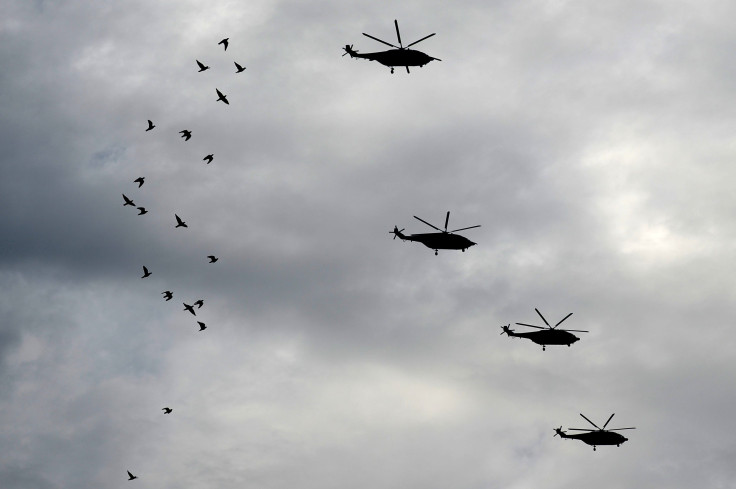China To Grant Amnesty To 'Thousands' Of Prisoners To Commemorate 70th Anniversary Of End Of War With Japan

China has announced plans to grant amnesty to as many as 10,000 prisoners, as part of next week’s celebrations commemorating the end of China’s war with Japan -- and of World War II -- 70 years ago.
The amnesty, the country’s first in four decades, would apply partly to military veterans, according to state media. One academic quoted by the official Global Times newspaper said many of the beneficiaries would be elderly prisoners who had fought for their country against the Japanese, or for the Communist Party in China’s civil war of the late 1940s, or in other later conflicts, such as the Korean War or China’s invasion of Vietnam in the late 1970s.
Other prisoners aged over 75 would also be eligible for amnesty, as would those with physical disabilities, and people sentenced as minors to no more than three years in jail.
However officials stressed that only those who posed “no threat to society” would be freed, and reassured the public that no-one convicted of a “serious crime” -- such as rape, terror or violent crimes -- or found guilty of bribery or embezzlement in China’s ongoing anti-corruption campaign, would be released.
Some observers have noted that China's last amnesty was in the era of Chairman Mao Zedong, and have suggested that the move is another sign that current President Xi Jinping is becoming China's most powerful leader since Mao, who died in 1976.
John Kamm, head of the Dui Hua Foundation, a U.S.-based human rights group that campaigns on behalf of Chinese prisoners, told the Wall Street Journal that no other leader since Mao has “dared to issue a special pardon.” He said the move “demonstrates [Xi’s] self-confidence.”
However, one Chinese academic told the Global Times that the action would “promote the authority" of China's constitution, which permits the granting of amnesties, and would increase public awareness of, and confidence in, the law. Another expert said the move showed that China’s penal system could “remold” criminals into law-abiding citizens, and would help create a “civilized and law-abiding image” of a nation that “pays attention to humanitarianism.”
However human rights groups noted that the amnesty would not include people jailed for political activism, and have also warned recently that China is currently engaged in its harshest crackdown on civil society for two decades, with many lawyers and social activists detained or jailed over the past two years.
The announcement of the amnesty is, however, another sign of just how much importance the Chinese authorities are attaching to commemorations of the seventieth anniversary of the end of the war with Japan. The country is holding a massive victory parade in Beijing on Sept. 3, which some observers say is both a way of asserting China’s growing military might and international stature, and of stressing the power of President Xi, who will preside over the event -- not least by emphasizing his control over the nation's military.
© Copyright IBTimes 2024. All rights reserved.












